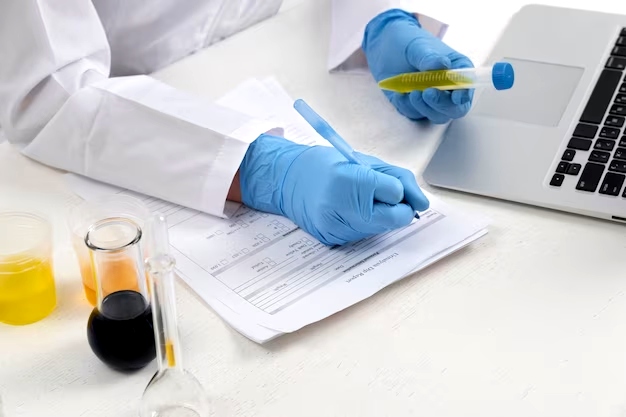The medical field is an ever-evolving landscape with discoveries, methodologies, and technologies sprouting daily. Montreal, the largest city in Canada’s Quebec province, is a significant player in this landscape, especially in lab testing. This article will explore the multidisciplinary approaches to lab testing, lab tests for rare diseases, the challenges in translational research, and Montreal’s global impact on lab testing.
Multidisciplinary Approaches to Lab Testing
Lilium Diagnostics, a medical laboratory in Montreal, embodies the multidisciplinary approach. This method integrates several disciplines to create a comprehensive and more effective testing procedure. This approach is crucial in the medical field, given the interconnection of various body systems and the need to consider multiple aspects of a patient’s health when diagnosing and treating diseases.
The first aspect of the multidisciplinary approach is the collaboration between various medical professionals. At Lilium Diagnostics, medical scientists, pathologists, lab technicians, and clinicians work together to ensure accurate and timely lab test results. This teamwork allows for a broader perspective, leading to a more precise diagnosis and treatment plan.
Secondly, the multidisciplinary approach is evident in Montreal’s wide range of lab tests. These tests range from standard blood tests, such as complete blood counts and lipid profiles, to more specific tests, such as genetic testing and immunoassays. This diversity ensures that various diseases and conditions can be accurately diagnosed and monitored.
Finally, the multidisciplinary approach to lab testing involves using state-of-the-art technology and techniques. These include automated analyzers, high-resolution microscopes, and advanced staining techniques, increasing test results’ accuracy and speed.
Lab Testing for Rare Diseases
One of the critical areas where lab tests in Montreal shine is diagnosing rare diseases. The city’s medical laboratories, including Lilium Diagnostics, are equipped to conduct complex tests to detect these uncommon conditions. Identifying these diseases often requires specialized tests, only available in some labs.
For instance, genetic testing is crucial in diagnosing many rare diseases. These tests look for specific alterations in chromosomes, genes, or proteins that indicate the presence of a genetic disorder. Given the complexity of these tests, they require highly skilled professionals and advanced equipment, which are readily available in Montreal’s labs.
Additionally, Montreal labs also offer a variety of specialized biochemical tests. These tests can measure the levels of various substances in the body, providing critical information for diagnosing rare diseases. For example, enzyme assays can diagnose lysosomal storage disorders, while amino acid and organic acid analyses can help identify metabolic disorders.
Challenges in Translational Research
While Montreal’s lab tests have made significant strides, challenges remain, particularly in translational research. This type of research aims to “translate” findings from a fundamental study into medical practice and meaningful health outcomes.
One of the main challenges in translational research is the gap between the laboratory and clinical practice. While a test may work well in a controlled lab environment, it may perform better when applied to patient care. This challenge requires ongoing research and development to ensure that lab tests are reliable and applicable in real-world scenarios.
Another challenge is the high cost associated with translational research. Developing new lab tests or improving existing ones often requires significant financial investment. This challenge underscores the importance of funding and resources in advancing Montreal’s lab testing capabilities.
Lastly, there can also be regulatory hurdles. New lab tests must undergo rigorous approval processes to ensure their safety and effectiveness. This process can be time-consuming and delay potentially beneficial tests’ availability.
Montreal’s Global Impact on Lab Testing
Despite these challenges, Montreal has made a significant global impact in lab testing. Its advanced medical laboratories, including Lilium Diagnostics, have been at the forefront of numerous breakthroughs. These labs have introduced new tests, improved existing ones, and provided critical diagnostic services to patients in Montreal and beyond.
In particular, Montreal has made significant contributions to the field of genetic testing. Its labs have developed and refined various genetic tests, helping diagnose multiple congenital disorders. These tests have benefited patients in Montreal and those in other parts of the world.
Moreover, the city’s commitment to research and development has also been critical to its global impact. Montreal labs are continually involved in research to improve lab tests and diagnostic procedures. This research has led to more accurate, faster, and more cost-effective tests, enhancing diagnostic capabilities worldwide.
In conclusion, Montreal’s lab tests, fueled by the multidisciplinary approach and a commitment to research, have significantly impacted the medical field. The city’s labs, including Lilium Diagnostics, continue to innovate and push the boundaries of what is possible in lab testing. Despite the challenges, they continue to provide valuable services to patients, making a significant difference in healthcare outcomes.








